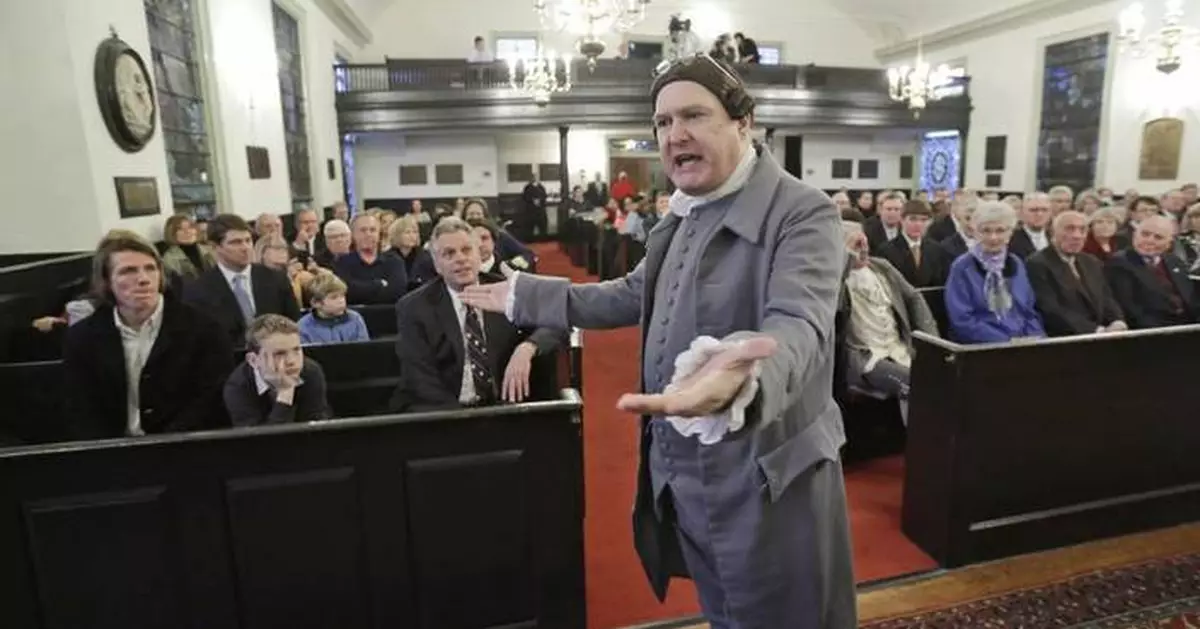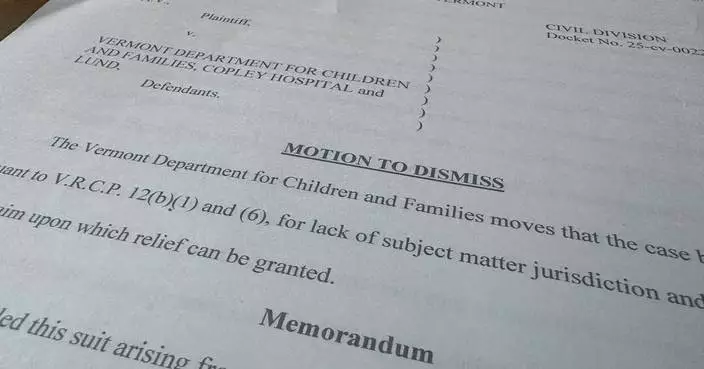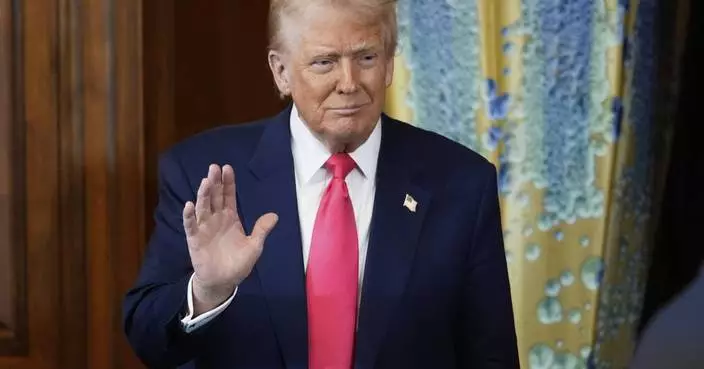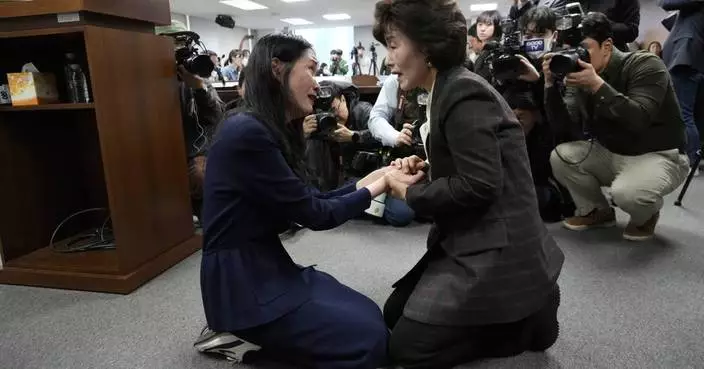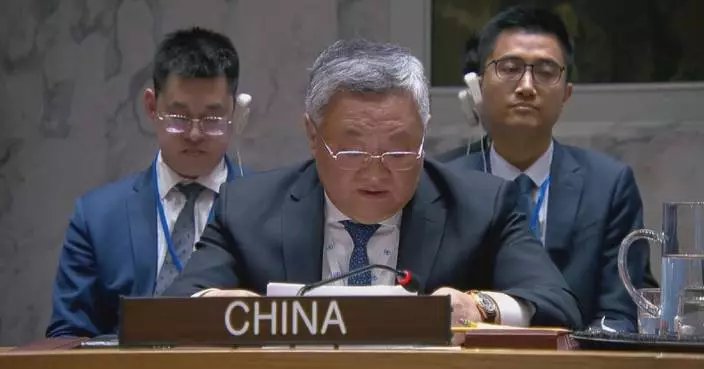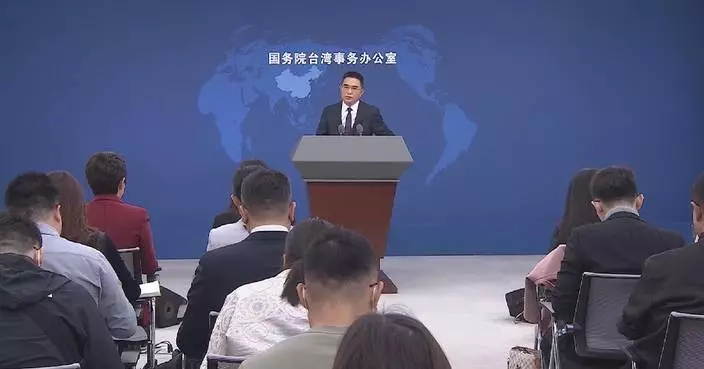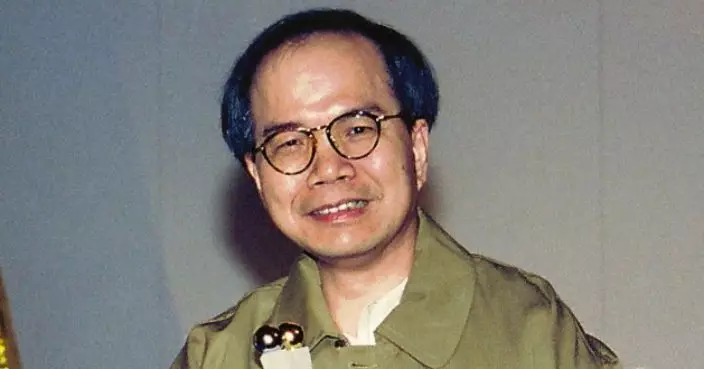The phrase “Give me liberty or give me death!” has survived the centuries like a line in a Shakespeare play.
It’s been expressed by protesters from the 1989 Tiananmen Square uprising in China to those who opposed COVID-19 restrictions in the U.S. in 2020.
Malcolm X referenced it in his 1964 “Ballot or the Bullet” speech, demanding equal rights for Black Americans. President Donald Trump quoted it on his Truth Social platform last year, lambasting a judge during his criminal hush money trial.
The phrase was reportedly first used 250 years ago Sunday by lawyer and legislator Patrick Henry to persuade Virginia colonists to prepare for war against an increasingly punitive Great Britain, just weeks before the American Revolution.
The liberty, of course, largely was for white, landowning men, not the people Henry and other founders enslaved. He was demanding a specific kind of freedom from the British Empire. Tensions were coming to a boil, particularly in Massachusetts, where the British replaced elected officials, occupied Boston and shuttered the harbor.
“The entire episode was about helping our brethren in Massachusetts,” said historian John Ragosta, who wrote a book on Henry. “It’s about the community. It’s about the nation. It’s not about, ‘What do I get out of this personally?’”
The printed version of Henry’s speech was about 1,200 words. And yet those seven words have lived on, often contorted to fit a political moment.
“It’s a very malleable phrase,” said Patrick Henry Jolly, a fifth great-grandson of Henry. “It’s something that can be applied to many different circumstances. But I think it’s important that people understand the original context.”
Jolly reenacted Henry’s speech Sunday in the same church where his ancestor delivered it. His presentation and others were part of Virginia's commemoration of the 250th anniversary of the nation's birth.
Here's more information on Henry and his speech:
Born to an influential Virginia family in 1736, Henry became a successful trial lawyer in his 20s.
According to the Library of Congress, he once astonished a courtroom with an argument that “man is born with certain inalienable rights,” an idea echoed in the Declaration of Independence.
In 1765, Henry won a seat in Virginia's colonial legislature. He was instrumental in opposing Great Britain's Stamp Act, which levied a direct tax on the American colonies to raise money for Britain.
As tensions increased, many Americans felt like second-class citizens with no representation in parliament, Ragosta said. By the time of Henry's speech, many were thinking: “The king won’t listen to us. They’ve invaded Boston. What should we in Virginia do about that?”
When Henry demanded liberty, he was aware of the contradictions, if not hypocrisy, of the moment.
In a 1773 letter to antislavery Quaker John Alsop, Henry acknowledged that slavery was continuing as "the rights of humanity are defined and understood with precision, in a country, above all others, fond of liberty.”
The “lamentable evil” would someday be abolished, he wrote, but apparently not yet.
“I am drawn along by the general inconvenience of living without them,” he wrote. “I will not — I cannot justify it, however culpable my conduct.”
In his 2004 book, “Founding Myths,” historian Ray Raphael wrote “it is highly unlikely” Henry said, “Give me liberty or give me death!”
Henry did not write down the speech and the version we know today was published 42 years later in an 1817 biography of him. The biographer, attorney William Wirt, pieced together Henry's words from the decades-old recollections of people who were there.
The printed version, Raphael wrote, “reflects the agendas of 19th century nationalists who were fond of romanticizing war.”
But other historians said there is ample evidence Henry uttered those words.
“We have multiple people, years later, saying, ‘I remember like it was yesterday,'" Ragosta said, adding that Thomas Jefferson was one of them.
They recalled Henry lifting a letter opener that looked like a dagger and plunging it under his arm as if into his chest before saying the famous phrase.
“That’s 18th century oratory," Ragosta said. ”It’s very impassioned."
Jon Kukla, another historian who wrote a book on Henry, cited other evidence. Men in Virginia's militias soon embroidered their heavy canvas shirts with “liberty or death.”
The popular 1712 play “Cato” about a Roman senator also contains the line, “It is not now a time to talk of aught, but chains or conquest, liberty or death."
“It would have been part of the literate culture of the age,” Kukla said.
The most immediate impact of Henry's speech was more support for independence and the expansion of Virginia's militias.
In the months afterward, Henry and others also were driven by fears that the British would free enslaved people, Raphael suggests in “Founding Myths."
Virginia’s royal governor, Lord Dunmore, offered freedom to enslaved people who fought for the British.
But Ragosta said that was not a primary motivation for Henry, who enslaved dozens of people.
“That does move a lot of people off the fence into the patriot column, undoubtedly,” Ragosta said. “But that’s not really what’s going on with the Jeffersons, the Washingtons, the Henrys. They had already been very committed to the patriot movement.”
An estimated 30,000 people escaped Virginia plantations in attempts to reach British lines, according to Simon Schama’s 2005 book, “Rough Crossings: Britain, the Slaves and the American Revolution.”
One was Ralph Henry, who was enslaved by Patrick Henry and evidently took the famous words “very much to heart,” Schama wrote.
Following independence, Henry served as Virginia's governor five times. He also became known as an anti-federalist, opposing ratification of the U.S. Constitution and a strong central government.
But Henry later spoke in support of the founding document at George Washington's urging in 1799, the year Henry died.
“He says, ‘Look, I voted against the Constitution, but we the people voted for it. And so we have to abide by it,’” Ragosta said.
Jolly, Henry's descendant, said most people react positively to his ancestor's famous words and acknowledge their historical significance.
“And there are some people that react thinking that it's a rallying cry for them today to defend their rights — on both sides of the aisle,” Jolly said.
Yet Henry and his contemporaries were careful to distinguish liberty from license, said Kukla, the historian.
“Liberty, as they understood it, was not the freedom to do anything you damn well pleased," Kukla said.
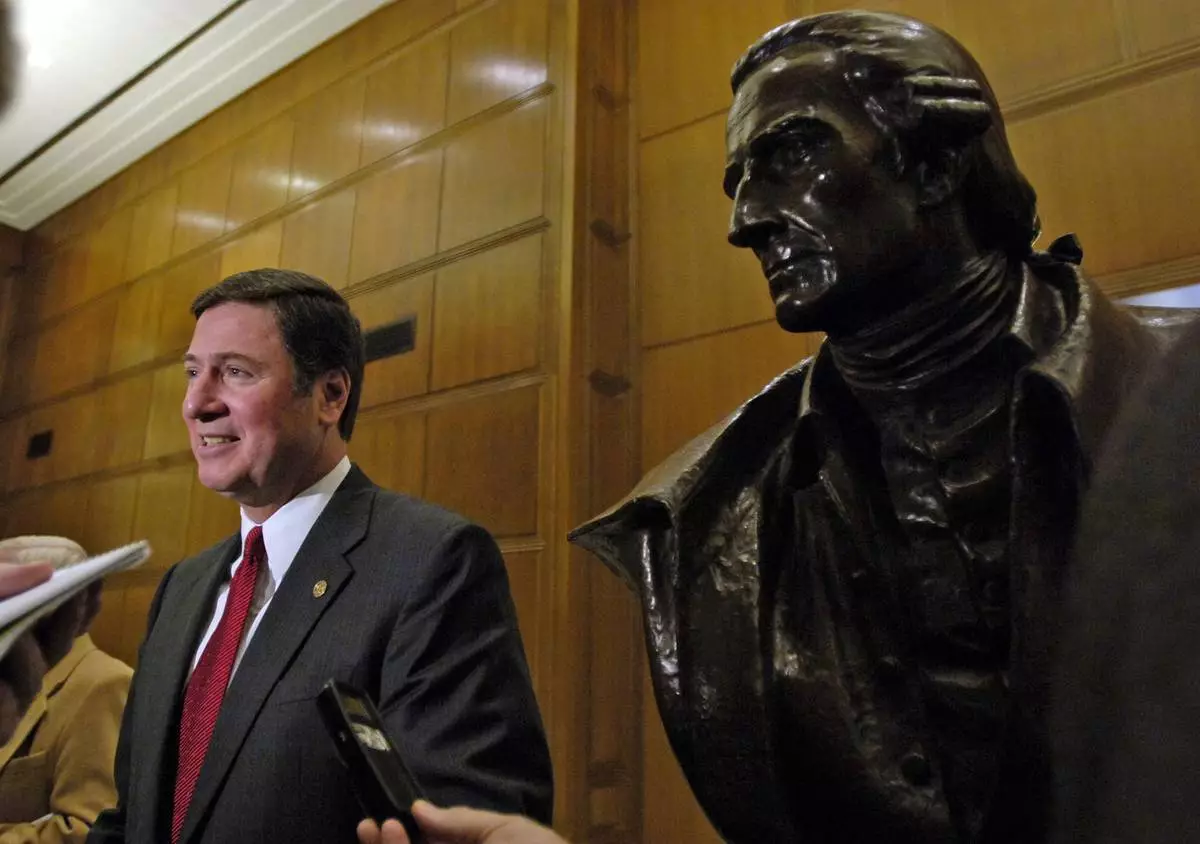
FILE - Sen. George Allen, R-Va., talks with the media as he stands beside a bust of Patrick Henry after Allen adressed the Republican caucus inside the Patrick Henry Building in Richmond, Va., Monday, on March 6, 2006. (AP Photo/Richmond Times-Dispatch, Bob Brown, File)
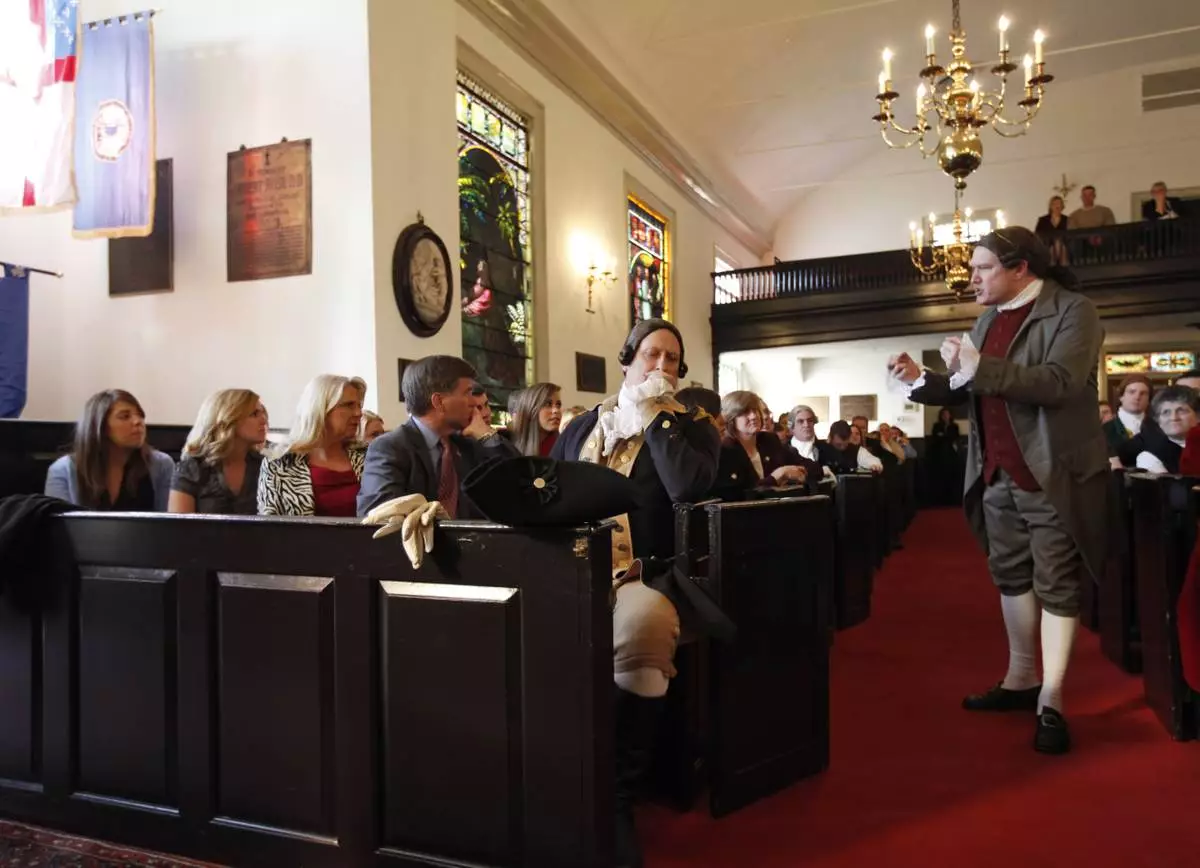
FILE - Virginia Gov.-elect, Bob McDonnell, fourth from left, listens to a speech by Patrick Henry re-enactor, Michael Wells, right, at St.,John's Church in Richmond, Va., on Jan. 15, 2010. (AP Photo/Steve Helber, File)
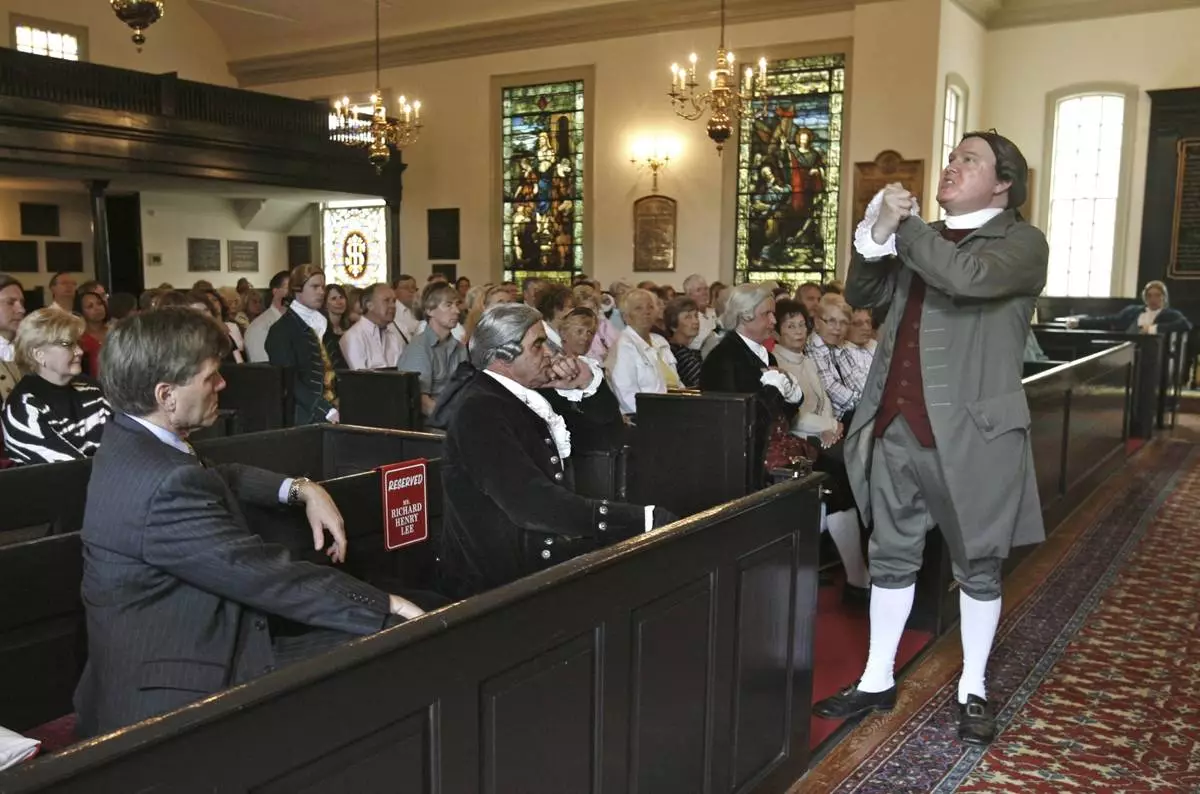
FILE - Virginia Governor Bob McDonnell, left, listens as historical interpreter Michael Wells delivers the "Liberty or Death" speech as Patrick Henry in St. John's Church, Sunday, April 25, 2010. (AP Photo/Richmond Times-Dispatch, P. Kevin Morley, File)
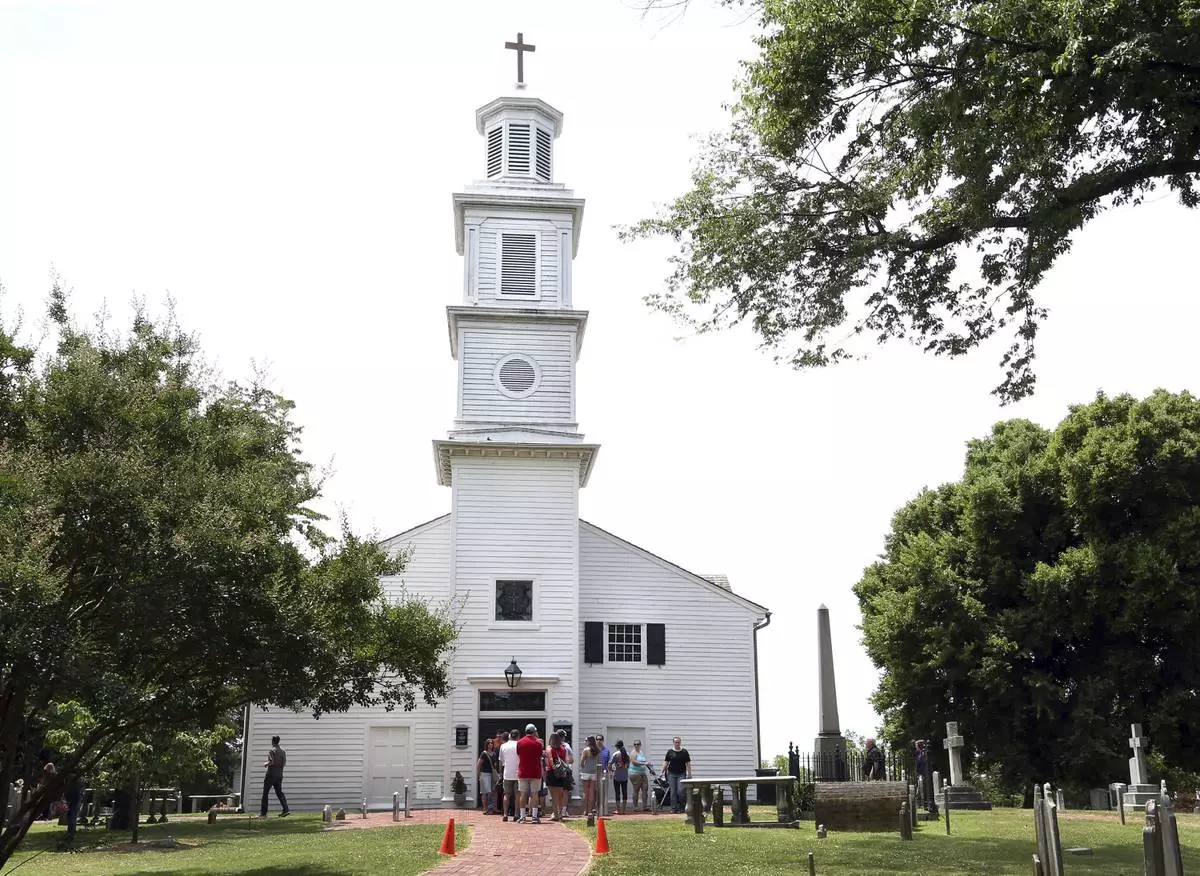
FILE - Visitors line up to enter St. John's Church to hear a re-enactment of Patrick Henry's famous "Liberty or Death" speech, on June 28, 2014, in Richmond, Va. (AP Photo/Richmond Times-Dispatch, P. Kevin Morley, File)
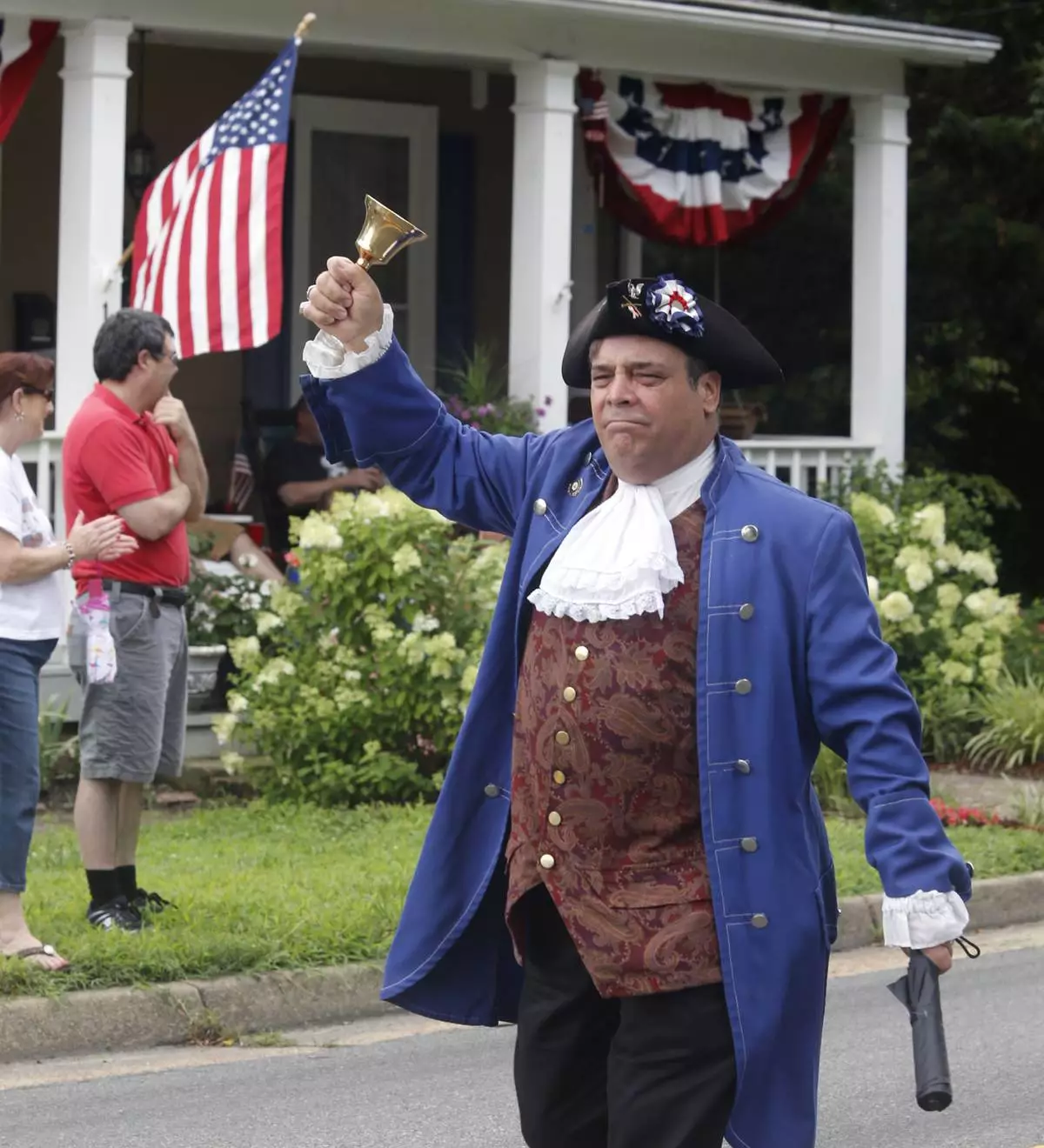
FILE - Ashland, Va. resident John Wallmeyer portraying parriot and native-son Patrick Henry, marches during the annual 4th of July parade in Ashland, Virginia, on July 4, 2015. (Joe Mahoney/Richmond Times-Dispatch via AP, File)
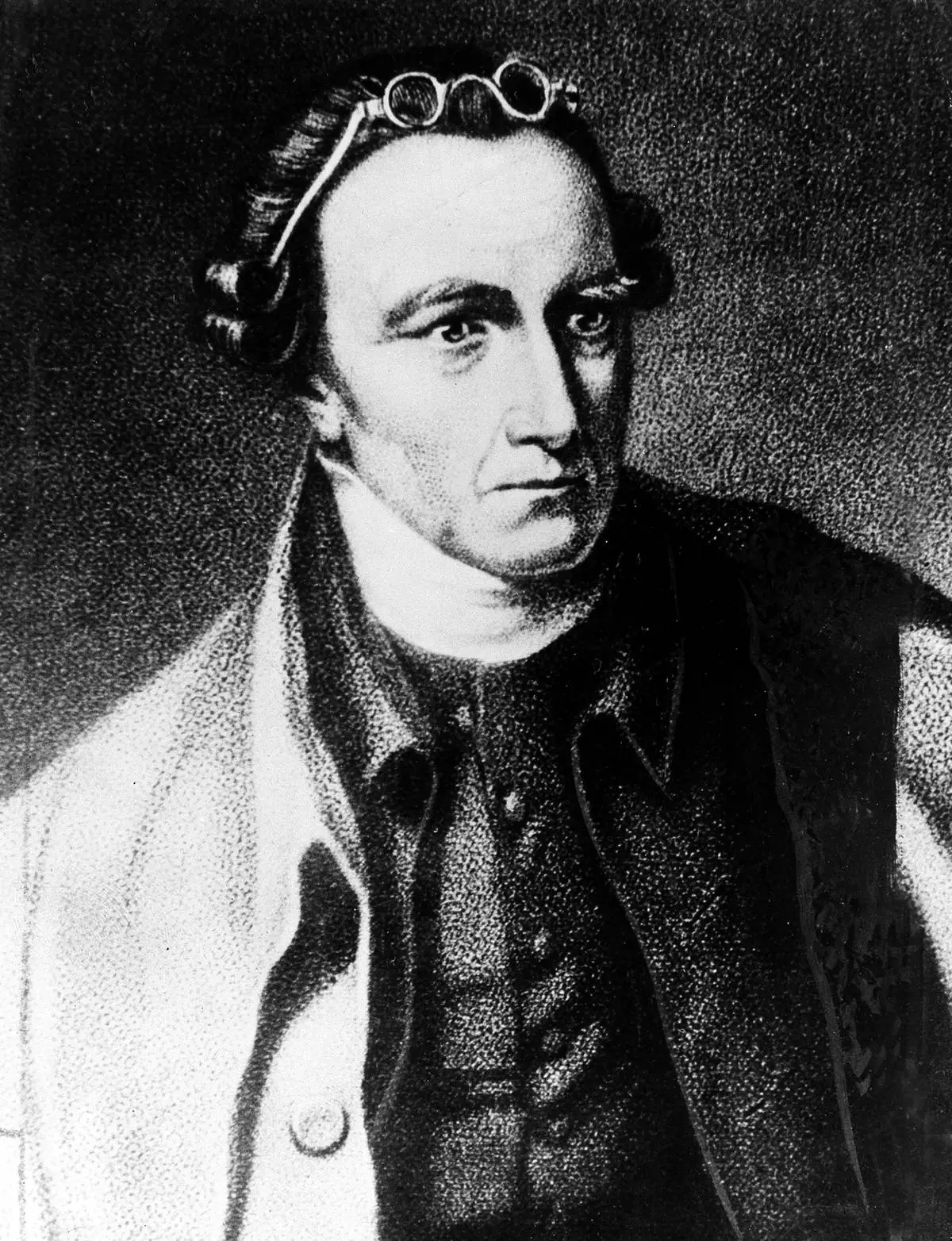
FILE - This is an undated portrait of American patriot Patrick Henry. Henry was born in 1737 in Virginia, where he served as governor from 1776 to 1779 and 1784 to 1786. He contributed to the adoption of the Bill of Rights. (AP Photo, File)
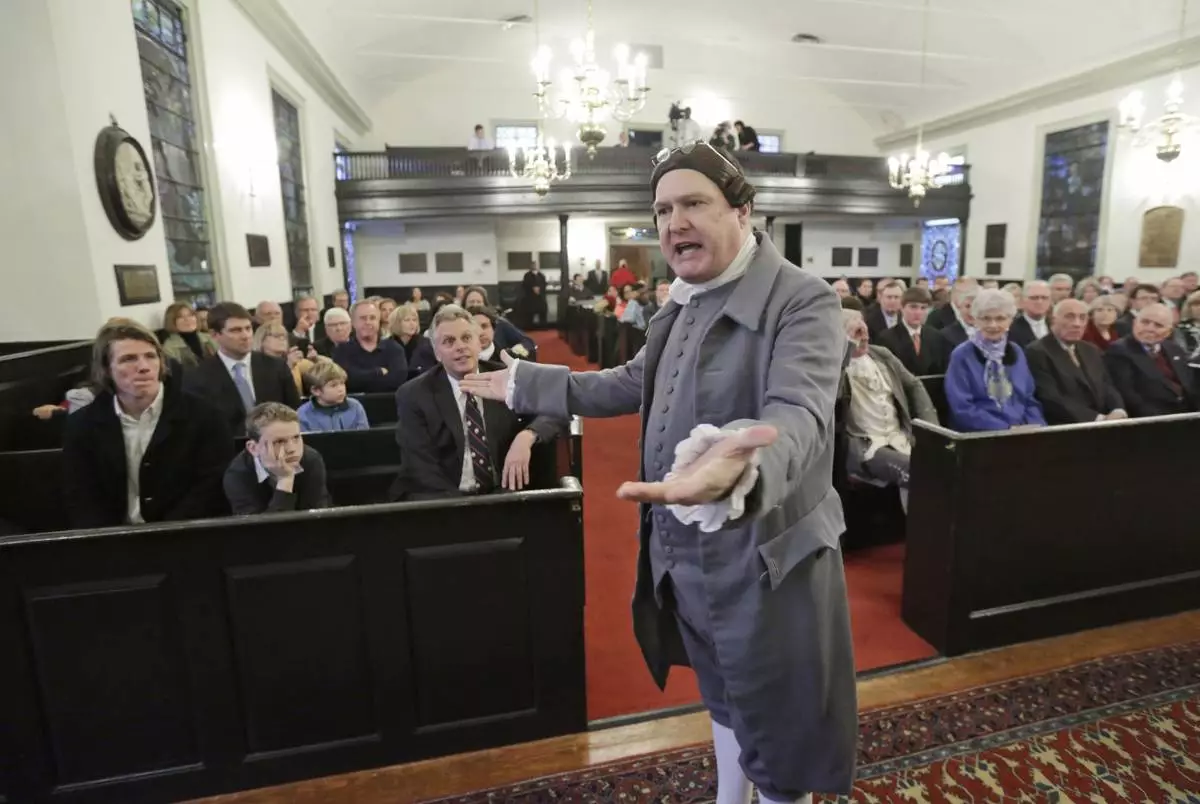
FILE - Virginia Gov-elect, Terry McAuliffe, seated center, listens as historical interpreter, Michael Wells, center, re-enacts the speech of Patrick Henry in St. John's church on church Hill in Richmond, Va., Friday, Jan. 10, 2014. McAuliffe is due to be inaugurated as the 72nd Governor of Virginia. (AP Photo/Steve Helber, File)


